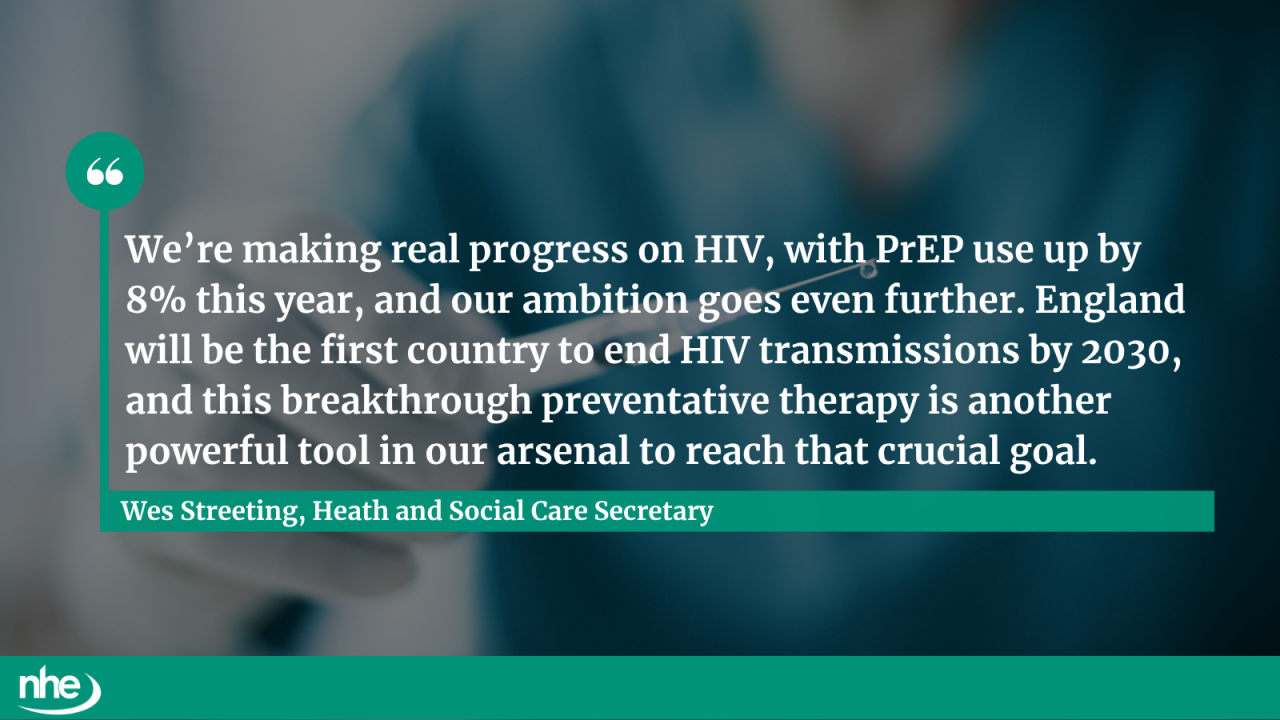NHS England is set to offer a new long-acting HIV prevention injection to around 1,000 people who are unable to take oral PrEP tablets, marking a major milestone in the UK’s mission to eliminate HIV transmissions by 2030.
Following approval by the National Institute for Health and Care Excellence (NICE) on 17 October, the injectable therapy – cabotegravir – will be made available in sexual health clinics across England in the coming months.
This breakthrough treatment, administered every two months, is designed for individuals who cannot tolerate or access oral pre-exposure prophylaxis (PrEP). Cabotegravir works by blocking the HIV enzyme integrase, preventing the virus from replicating and establishing infection in the body.
The move supports NHS England’s ambitious goal to become the first country in the world to end HIV transmissions within five years. PrEP, whether taken orally or via injection, is nearly 100% effective at preventing HIV when used correctly.
The announcement coincides with the expansion of the NHS Blood Borne Virus Opt-out Testing programme, which now includes 89 major hospital emergency departments in high-prevalence areas. This initiative is expected to identify up to 1,900 new or previously undiagnosed HIV cases annually.
To support this expansion, NHS England is investing £27 million in 2025, building on the £20 million allocated in 2022 to implement routine HIV testing in 34 emergency departments.
Wes Streeting, Heath and Social Care Secretary, said:
“The approval of this game-changing injection perfectly embodies what this government is determined to deliver – cutting-edge treatments that save lives and leave no one behind. For vulnerable people who are unable to take other methods of HIV prevention, this represents hope.
“We’re making real progress on HIV, with PrEP use up by 8% this year, and our ambition goes even further. England will be the first country to end HIV transmissions by 2030, and this breakthrough preventative therapy is another powerful tool in our arsenal to reach that crucial goal.”

According to the UK Health Security Agency’s 2024 HIV surveillance report, new HIV diagnoses have dropped by 4% – from 3,169 in 2023 to 3,043 in 2024 – highlighting the impact of enhanced testing and preventative measures.
HIV remains a serious virus that weakens the immune system and, if untreated, can lead to life-threatening illnesses. The goal of HIV treatment is to reduce the viral load to undetectable levels, making it untransmittable to sexual partners.
This latest development reinforces the NHS’s commitment to inclusive, accessible, and effective HIV prevention, ensuring that no one is left behind in the fight to end transmission.
Image credit: iStock



















